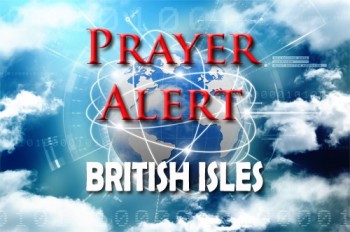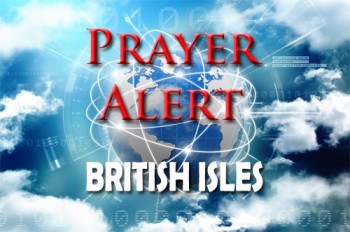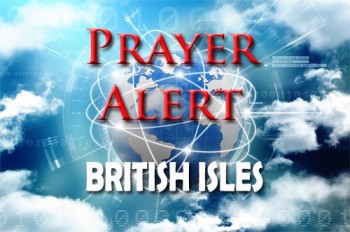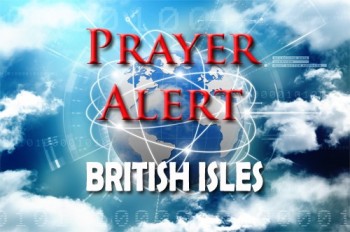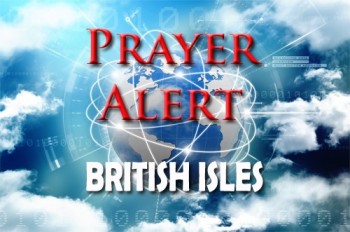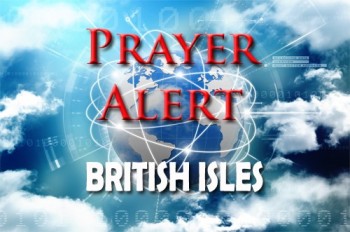Displaying items by tag: coronavirus
Coming out of lockdown: churches
Faith leaders and the Government have met virtually and organised a ‘places of worship taskforce’ to determine a timeline for churches coming out of lockdown, including possibly allowing buildings to open at different times depending on their community and practice. Members of the group include the Archbishop of Canterbury, Cardinal Vincent Nichols, Chief Rabbi Ephraim Mirvis, Imam Asim Yusef, Rajnish Kashyap from the Hindu Council UK, Jasvir Singh from City Sikhs and Daniel Singleton from Faith Action. They will consider whether forms of worship such as individual prayer might be permitted before they fully reopen.
Coronavirus: track and trace concerns
On 20 May Sir Keir Starmer asked the Prime Minister why there had been ‘no effective’ attempt to trace the contacts of those infected with Covid-19 since 12 March when tracing was abandoned. Mr Johnson replied, ‘We have growing confidence that we will have a test, track and trace operation that will be world-beating and yes, it will be in place by 1 June.’ He added that 24,000 contact tracers had already been recruited. The government does not have the luxury of testing and piloting this behind the scenes for months to come, so the system will have to evolve as it goes. On 21 May the NHS said, ‘Time is running out to finalise a “track-and-trace” strategy that would avoid a potential second surge in coronavirus cases.’
YMCA and coronavirus
Its chief executive has said, ‘YMCA’s unique nature is particularly affected by this crisis. Our work stretches across every aspect of the community and throughout people’s lives: whether it is the youth clubs we deliver to thousands of young people, the nursery provision provided to tens of thousands of families, or the health and wellbeing services delivered to the elderly and vulnerable. YMCA supports communities across the country; every hour of every day, through the good and bad times. Our frontline work is significantly disrupted by coronavirus. It is affecting those people who come and go from our services as well as those individuals who depend on it as a lifeline and place to call home. YMCAs are facing a multitude of challenges in keeping our support operational; not least ensuring that our staff and volunteers are safe whilst at work.’
Antibody test 'playing on people's fear'
Superdrug has started selling a coronavirus antibody test, costing £69, to the public. They sold out in a few hours. The tests are intended to tell if someone had the virus in the past. The user takes blood samples and posts them off to a laboratory, where it takes 24 hours to produce a result. Medical giant Abbott, which makes the tests, insists that they are not intended to be used by people taking their own blood samples. They have only been found to be accurate on blood samples taken by trained healthcare providers directly from patients' veins. The MP who chairs the parliamentary panel on consumer protection said, ‘Superdrug seems to be playing on people’s fears and that is not right. What people really need is a readily available, easy to use test that is accurate’. She added that the cost is excessive and it is not 100% accurate. See
Yemen: Houthis ‘concealed’ coronavirus outbreak
Yemen’s Saudi-backed government has accused the Houthis of covering up a large outbreak of coronavirus in areas that they hold, and has called for urgent global assistance to help their war-ravaged health sector deal with coronavirus. The United Nations warned that the country could suffer a ‘catastrophic’ food security situation due to the pandemic. The WHO said that the virus is spreading undetected among the population in the country, control of which is divided between the government in the south and the Houthi group in the north.
Mexico: health workers attacked
Social media report that doctors have been assaulted by relatives of coronavirus patients, and health workers attacked verbally and physically. Daniel, wearing his hospital cleaner uniform, was brutally attacked on a bus by people shouting ‘dirty’ at him. He thought it was never going to end. Nurse Melody came face to face with residents blocking her path when she tried to return home. She said ‘If I entered the village I wouldn't be allowed to leave again. It would be better if I didn't enter because I came from a source of infection.’ She is temporarily renting a flat elsewhere. Experts believe that the attacks reflect the public's fear of what the medical workers represent in a country with tens of thousands of deaths. Unlike other traumatic events, cannot be avoided, and generates more fear motivated by ignorance and fright. The national guard is now in hospitals, and some medical workers receive government transport for long commutes home.
Disproportionate impact of virus on ethnic minorities
The Catholic Church has said that the Government should treat the effects coronavirus has on ethnic groups as a matter of urgency. New analysis suggests that black men and women are more than four times more likely to die a coronavirus-related death than white people. Black males are 4.2 times more likely, and black women 4.3 times more likely, to die after contracting the virus. People of Bangladeshi, Pakistani, Indian, and mixed ethnicities also had an increased risk of death compared with those of white ethnicity. While public health leaders have said that they will review how different factors, such as ethnicity, obesity, and geographical location influence the effects of the virus, the church has said that more must be done.
Coronavirus - fears for people with learning disabilities
Nurse academic Irene Tuffrey-Wijne says figures about deaths from coronavirus of people with learning disabilities are needed now to help prevent unnecessary deaths. Public Health England have stated that an expert group will analyse data on the deaths from coronavirus of those with learning disabilities and autism. However, the data will not be published until 2021. Ms Tuffrey-Wijne said, ‘It’s not good enough to look at this retrospectively in 2021; it will be too late then to prevent unnecessary deaths in 2020.’ The Care Quality Commission says there has been a 175% increase in deaths of people with learning disabilities living in adult social care organisations in England, compared with the same period last year. But while elderly people are entitled to be tested for coronavirus, people with a learning disability are not. See
Safety first
Three frontline health care workers have mysteriously fallen out of hospital windows in Russia recently, heightening public attention to the working conditions for medical staff. The incidents reflect the stress doctors are under in ill-equipped hospitals where medical workers are getting sick or dying: see Many healthcare staff are scared to complain publicly about working conditions. The UK media claimed 400,000 PPE sent from Turkey failed to meet UK safety standards, with gowns not ‘of the quality good enough for front-line staff'. As France extends emergency measures until 24 July, passengers travelling on Eurostar from the UK will have to wear a face mask or face covering, in line with guidelines from the French and Belgian governments.
East Africa: triple tragedy
Torrential rains causing floods and landslides displaced 100,000 people and killed about 200 in Kenya. Floods destroyed 8,000 acres of crops, and the extreme rainfall will continue until the end of May. In Uganda, a river burst its banks, causing people to flee for safety. The waters of Lake Victoria have risen to unprecedented heights, forcing shoreline communities to abandon their homes. Rwanda, too, has seen houses, roads, and crops destroyed, and many killed by mudslides. At the same time, trillions of locusts have descended on the region. They can travel over 100 miles a day. There are 18 separate swarms in Kenya at present, and weather conditions are expected to favour breeding, so that a third generation could hatch in June and July. Added to these two tragedies, coronavirus is spreading among huge numbers of displaced people and closed borders are delaying delivery of pesticides to locust-affected areas.
